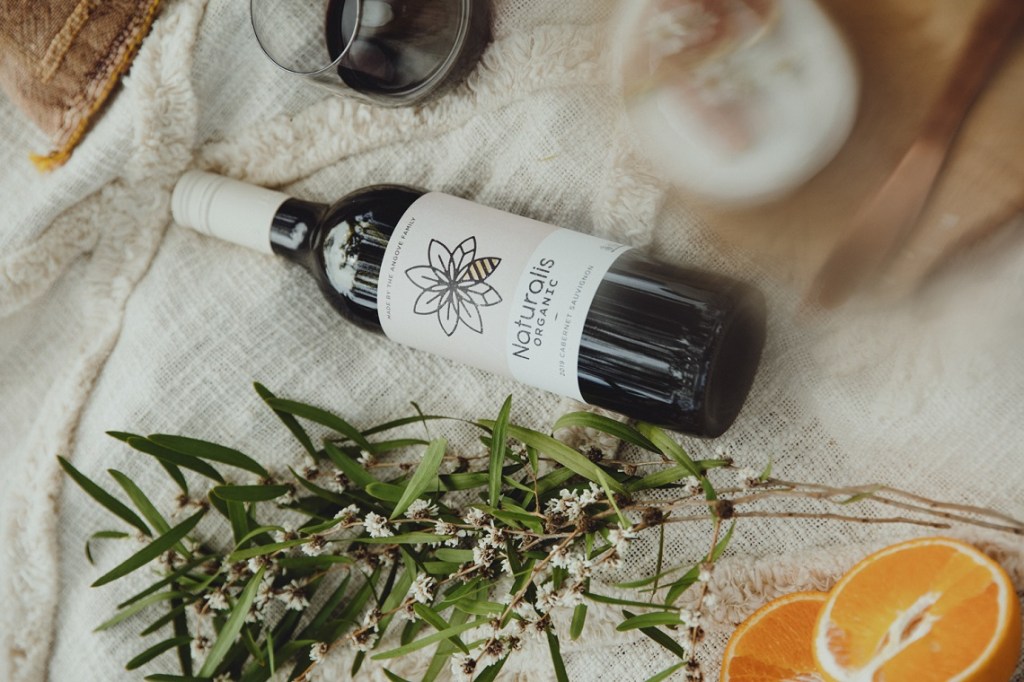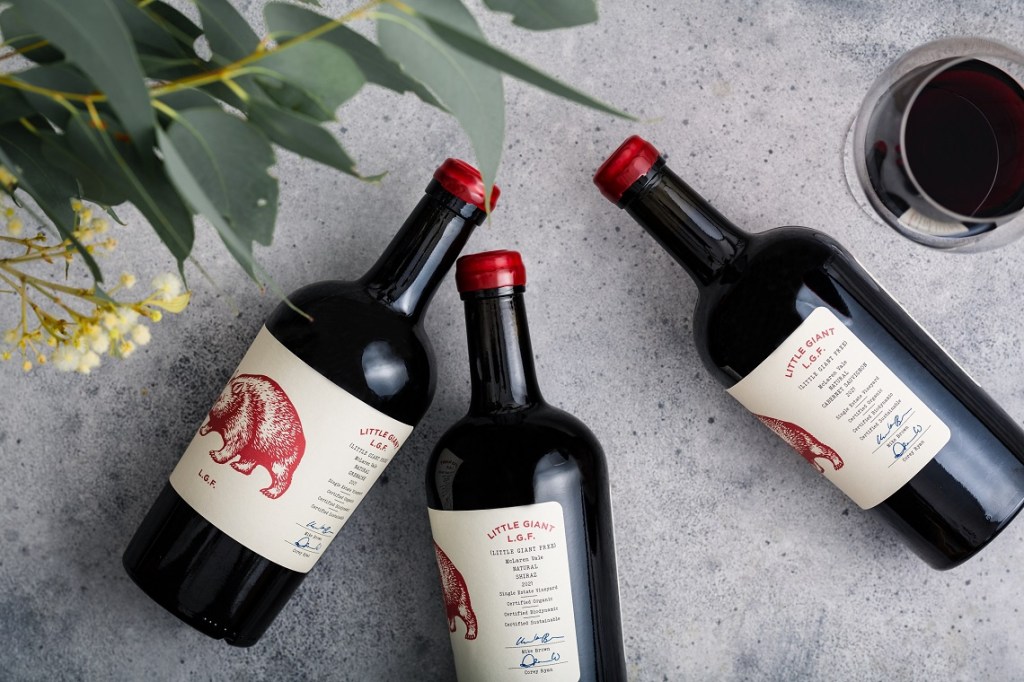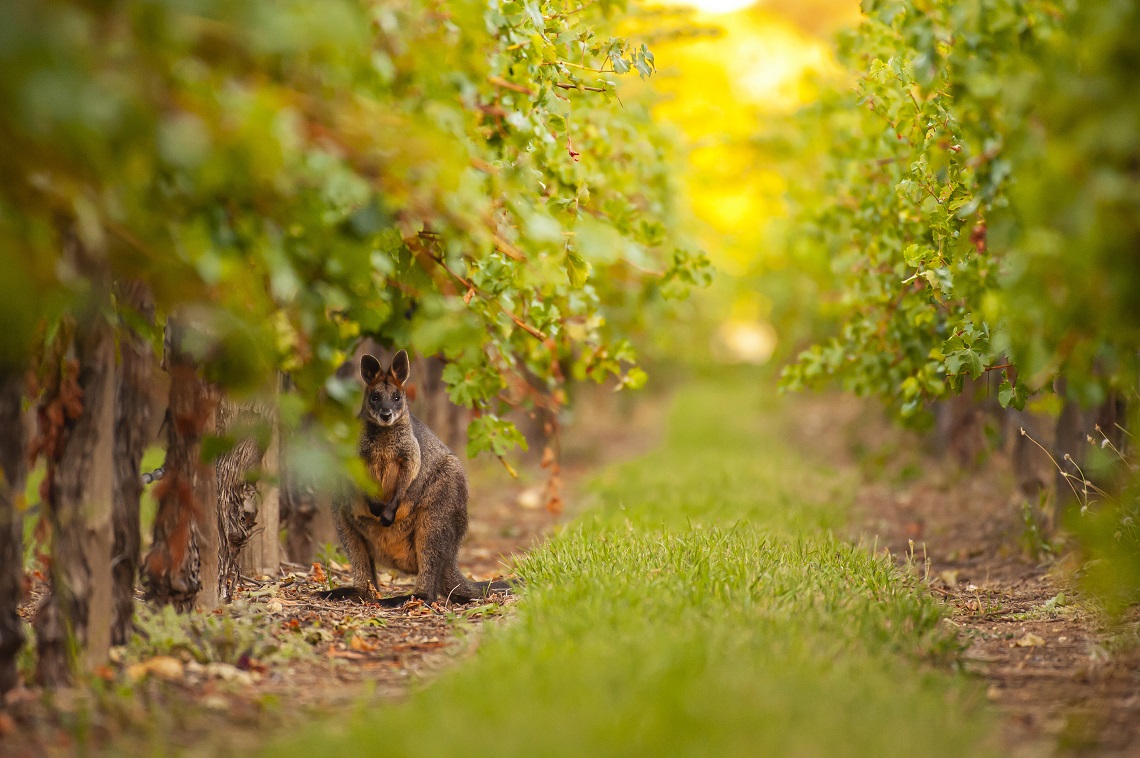The concept of organic and/or biodynamic has certainly been brought further into the mainstream light in recent years, as people generally become more educated about what these terms mean, and why they matter.
The essence of a food or drink product being certified organic comes down to the producers not using any synthetic chemicals, and going through rigorous auditing to prove it.
When it comes to organic wine, this means no man-made pesticides or herbicides in the vineyard and no otherwise artificial chemicals used in production. The teams behind organic wine labels instead learn to work with the environment to overcome any challenges that arise, with a focus on promoting the health of the soil, the plants, and the entire ecosystem that the vines call home.
At New Zealand’s Villa Maria, adding organic wines to the portfolio has given the company the opportunity to learn more about the terroir where their grapes are grown and has positively impacted all areas of its viticulture.
“Organic wines are the perfect experiment to challenge us to step outside the norm with the way we tend our vines and enhance the wonderful soils and ecosystems we are fortunate to have in Aotearoa New Zealand,” said Patrick Materman, Director of Winegrowing, and Hannah Ternent, Technical Manager.
“Many of these learnings we have carried through into all our viticulture practices and we have been reaping the benefits of fantastic biodiversity and health in our vineyards.”
Organic viticulture has also taught important environmental lessons to Fourth Wave Wine, according to Co-owner, Nicholas Crampton. This is particularly evident in its organic labels such as Bumblebee, Farm Hand and Little Giant Free.
“Harmony with nature through organic, sustainable and vegan friendly practices allows all to flourish – the vines, the plants and the animals. The bees play a vital role in the ecosystem and support us in cultivating healthy crops through a ‘back to basics’ and organic approach to farming,” he said.

Reasons that wineries go organic
That strong connection to the true nature of a vineyard’s land is one of the many reasons that wineries and growers choose to go organic. According to Heather Fraser, Senior Winemaker at Yalumba, this creates wines that authentically showcase a specific region and how it can change throughout the years.
“Organic wines are part of our sustainability journey. We have chosen sites that are suited to sustainable organic viticulture and have worked on these to develop our wines as a true reflection of the place and the season in which they are produced,” Fraser said.
Tamburlaine Organic Wines has a number of organic vineyards in different regions. The company made the move to organic so the viticultural benefits could flow into the wines themselves.
Mark Davidson, Tamburlaine’s Managing Director and Head of Grape and Wine Production, said: “There were many factors that saw Tamburlaine change from non-organic farming and winemaking; failure of non-organic systemic vineyard chemicals, deteriorating organic matter in vineyard soils, increasing farm work health and safety issues, and questions about chemical residuals from grapes into wine.
“Ultimately the winery wanted the best wine quality and consistency possible from season to season.”
Fifth generation family company, Angove Family Winemakers, also believes that the health of the whole ecosystem leads to better tasting organic grapes. But this isn’t the only reason the producer went down the organic path 16 years ago, as Marketing Manager, Matt Redin, explained.
“Angove Family Winemakers are committed to sustainability in both the vineyards and in winemaking practices to ensure their legacy as environmental stewards lives on for future generations,” he said.
“It is this philosophy that is driving all aspects of our winemaking activities – we must hand the land and environment to future generations in better condition than when we became custodians. Being certified organic is a large part of this.”

What’s the difference?
We all know that a range of unchangeable conditions in the vineyard can impact the end wine, whether it be weather conditions, climate, altitude, or any number of other factors. Organic viticulture also makes an impact in a similar way, influencing the ecosystem to generate specific and healthy growing conditions for the grapes.
But what does that actually look like in the end wine? According to Materman and Ternent, it creates a “real X-factor in winemaking.”
“Rather than aromatic brightness, it can often be seen in terms of flavour depth and textural qualities,” they said.
Redin said the balance of the vineyard ecosystem that comes from using organic methods creates more intense flavours and characters in the grapes, and that is shown in the wines.
“We are also seeing flavour ripeness come earlier in certified vineyards, allowing us to pick earlier and at slightly lower sugar levels resulting in wines with lower alcohol,” he said.
“Because our wines are produced from incredibly healthy vines, you will experience an extraordinary purity of fruit and a taste that is unique to the South Australian wine regions where our grapes are grown.”
Crampton also said the intensity of organic wine is a key drawcard for using such farming practices.
“Organic viticulture processes on well-established vines (up to thirty years of age) ensures low yielding fruit with rich flavours and varietal expressiveness,” he said.
Meanwhile for Fraser, the difference in the end result goes back to how organic wine can present that most authentic representation of the land.
“By not adding any pesticides or herbicides in the vineyards, we are allowing the natural yeasts and flavours in the vineyards to carry through to the final wines,” Fraser explained.
“Our wines are not made with any added yeasts or any fining agents and are fermented on full solids. The natural fining of the wines comes from mixing on lees and the final flavours of the wines comes from the vineyards with little winemaking intervention other than to clarify and bottle.”
Read the rest of this feature, including reasons that consumers choose organic wines and ways to make the most of this in-store, in the September issue of National Liquor News.

